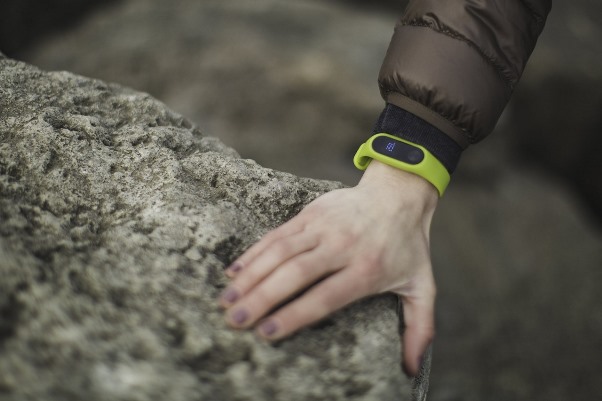Here’s why you should give health bands a try
If the latest photograph that your favourite celebrity posted of them working out is goading you to focus on your health more, you are not alone. It is not uncommon to see a celebrity share a post or a photograph describing their journey to a fitter self. Their stories of grit and hard work often leave one impressed. The benefits of enjoying a healthier life trump any discomfort that one might face.

However, the emphasis we place of fitness today was not always there. Somewhere, as the world progressed towards greater heights and work schedules became busier, health took a backseat. Before you know it, people became hooked on unhealthy lifestyles and takeout. As the nutritional value of meals went south, people started falling prey to lifestyle diseases like high blood pressure, diabetes, polycystic ovarian disorder, hormonal imbalances and even fatal conditions like cardiac problems and cancer, at an early age.
However, as health issues started interfering with professionals’ productivity, both employers, as well as employees, started paying more attention to what their bodies were trying to tell them. Soon enough, in-house gyms, canteens serving home-cooked meals and in-house doctors became the norm at most offices. As more and more people start attaching more importance to their health, there is a separate market that has emerged for the fitness conscious. Think fitness influencers, health bars, fitness programmes, diet-based services and nuanced products.
As beneficial as this trend is for society, there are a lot of people who are also demotivated very easily if they can’t see themselves progress almost immediately. This is where activity trackers or health bands factor in.
If you are one to be swayed by the fitness wave, chances are you have a regime ready. It could be something as simple as jogging and yoga or something as new-age as Zumba or gym workouts. Whatever be the plan, the only you need to ensure is that you enjoy your workout. At the same time, you might sometime be wanting to know how well a certain workout plan works for you. Health bands can help you figure out how well you are performing while working out or how is your body reacting to the fitness regime.
For those who didn’t know, health bands are activity trackers, which measure your physical activity throughout the day and calibrate parameters like heart rate and body weight. The most basic kind of health band is a pedometer, which counts the number of steps you walk over a period of time. The need to know how well a workout suits us is what drives most of us to buy health bands.
A typical health band measures the following indicators:
1. Number of steps: These bands measure the distance a person covers in a day and estimate the number of calories he/she burned during the period.
2. Heart rate: Fitness trackers measure the changes in your heart rate at regular intervals. A high rate of variation is a sign of not just good health, but also a high level of fitness.
3. Calories: Counting calories is one of the most sought after features of a health band. Depending on the physical activity you choose, you can change the settings of your health band and then find out how many calories you burned while working out.
4. Monitoring Sp02: One of the most common ways to get an idea about the oxygen saturation is to measure their Sp02 levels. Sp02 stands for peripheral capillary oxygen saturation. It represents the oxygen level in one’s blood. Most health bands are fitted with a pulse oximeter to gauge how much oxygen reaches your capillaries.
5. Blood sugar: Fitness trackers also come with sensors to measure the glucose in your blood. Some companies do offer bands with pinprick option too.
6. Sleep: Health bands also measure the number of hours you slept and the quality of your nap time by gauging body movement.
Amid the hoopla over health bands, the obvious question which strikes one’s mind is how effective are they? Experts have claimed that while fitness trackers do give you an idea of the way your body behaves during a workout, these results do not present the whole picture. There might be underlying health conditions that can only be detected at a doctor’s clinic. Also, a body’s reaction to a workout may depend on a lot of external factors like pollution levels and weather. Activity trackers are not customized to take into account these factors while calibrating results.
The market is filled with several brands offering you a myriad of options, so you might feel a bit confused. Here are a few things you should consider while choosing a fitness tracker:
Sensors: The kind of sensor a health band runs on determines the kind of experience you’ll get. The trackers track your physical activity by interpreting data collated by sensors fitted into these devices. While the most basic sensor would be an accelerometer, which measures linear acceleration. There are others that measure radial acceleration like gyroscopes. The more the number of sensors the more accurate the results will be.
Water-resistant: If you like to swim or are a fan of contact sports as a fitness method, it is important that you go for a water-resistant band.
Indicators: Make sure the health band you are choosing measures the health indicators you want to track.
Activities: Another important thing to factor in while buying a fitness tracker is to consider if its algorithm is calibrated to interpret the data for the physical activity you are interested in.


